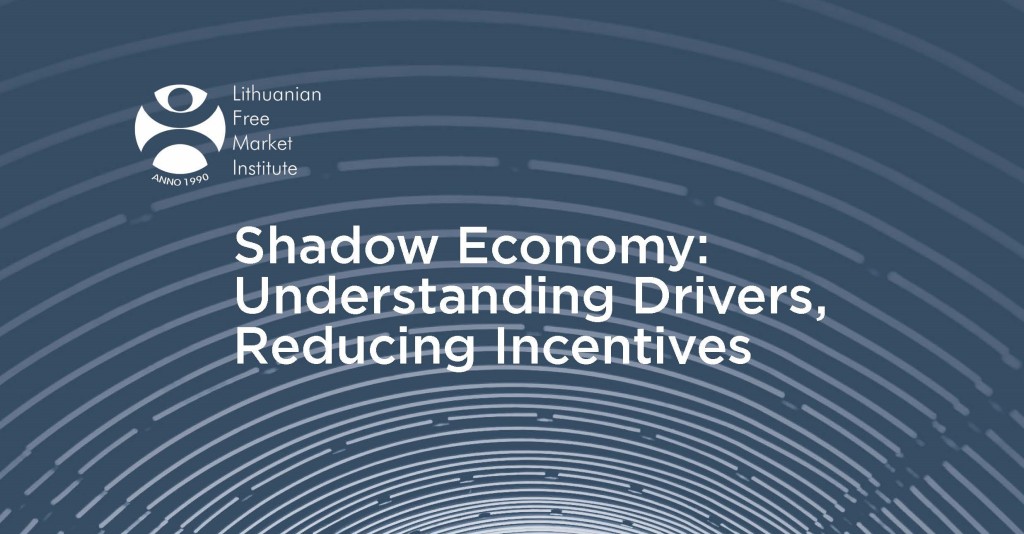The aim of the publication Shadow Economy: Understanding Drivers, Reducing Incentives is to present and analyse the results of representative population surveys into public perceptions of the shadow economy and engagement in illicit activities that were conducted in six countries – Lithuania, Latvia, Estonia, Poland, Sweden, and the Czech Republic – between March and April, 2018.
The study will be followed by a report that will offer a more in-depth investigation of the survey results on the drivers of the shadow economy, together with extensive policy recommendations.
The shadow economy may be defined as economic activities (labor, goods produced, and services rendered) that are conducted in non-compliance with applicable laws, for the purpose of avoiding taxes or/and regulations.
In order to effectively counteract the shadow economy, it should not just be viewed as a source of criminal offences. It is important to recognize that the shadow economy is primarily concerned with value creation. This suggests that the fight against the shadow economy is at its most effective not when illegitimate activities are completely eradicated, but when they are transformed from the unofficial to official domain.
In order for this to occur, one should consider the legal environment in which economic activities are carried out. Is it conducive to working and doing business? Incentives to participate in the shadow economy always stem from restrictions on legal economic activities, be they taxes or regulations.
The primary way to curb the shadow economy, therefore, is to create a favorable legal environment for economic activity.
This research report is based on a direct, micro (survey) approach to investigating the shadow economy. Such an approach allows for a better understanding of people’s motivations, perceptions and attitudes. It is impossible to formulate sound policies without understanding the public attitudes those policies are intended to address.
We believe that this publication not only provides new insights as to the extent of the shadow economy in the countries under analysis, but its micro approach helps us to better understand the perceptions of shadow economy participants and the public at large. This proves invaluable in navigating policies designed to combat the shadow economy.
Read the full research report: Shadow Economy: Understanding Drivers, Reducing Incentives
About the Research
The research report is based on representative population surveys carried out by Spinter Research between March and April 2018 in Lithuania, Latvia, Estonia, Poland, the Czech Republic and Sweden. Its goal was to examine the size and public perceptions of the shadow economy and engagement in illicit activities. A total of 6,055 individuals aged 18-75 were surveyed.
The study was prepared in cooperation with Prof. Dr Friedrich Schneider of Johannes Kepler University Linz, Dr Arnis Sauka (Latvia), Caspian Rehbinder (Sweden), the Estonian Business School, the Civil Development Forum (Poland), and the Centre for Economic and Market Analyses (the Czech Republic).
The research was funded by PMI Impact, a grant award initiative of Philip Morris International (PMI). The views and opinions expressed in this article and the research report are those of the Lithuanian Free Market Institute (LFMI) and do not necessarily reflect the views of PMI. In the performance of its research, LFMI maintained full independence from PMI. Responsibility for the information and views expressed in this report lies entirely with LFMI.



